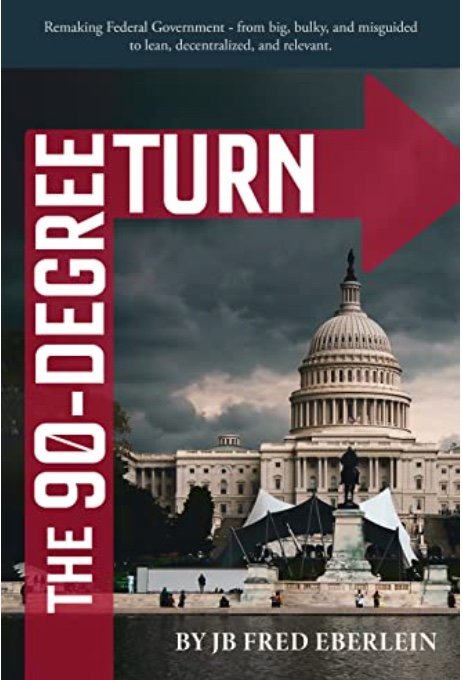the Needs Monitor Survey
I recently conducted a short (3-question) survey to measure interest in the Needs Monitor. If you're new to the Needs Monitor, read the following three bullets. Otherwise, drop down the page to the survey results.
What is the Needs Monitor?
The Needs Monitor is designed as a free citizen-to-government portal where citizen needs are reported, validated, and shared online and with government – local, state, and federal. In exchange, citizens learn where resources exist in government to help address their needs and who else (locally and nationally) shares their needs. Rather than politicians setting the agenda for the country, the country sets the agenda for politicians.
Why is it necessary?
The Needs Monitor is the first step in creating a bottom-up approach to the government that shapes and redefines government based on everyday needs, not governmental legacy, where budgets are renewed out of habit and not careful consideration.
People are government too.
Many have come to dislike, or even hate, government. Government is an easy target when things don't go our way. But government is people too. And between government people and citizen people, a lot can be accomplished.
This bonding will never happen when politicians are motivated to argue first and resolve last. In a world driven by campaign financing, arguments work better than solutions. Divisiveness pulls in donations; solving problems is boring and unfunded.
Given the unyielding influence of money, our politicians are more motivated to make a problem bigger than they are to fix it. (The same philosophy taught to future civil servants at American University in 1975. Party affiliation doesn't matter. This is a human problem; the bias of money and fame is impossible to ignore.
So, the Survey Says…
My thanks to SurveyMonkey. What a brilliant piece of tech. Within a day, I was able to collect feedback from 202 individuals.
What I appreciated most were the comments that indicate the Needs Monitor is understood. Only one person expressed confusion, but I was expecting many more.
Here are the comments from the Needs Monitor survey conducted on 31 August 2023, followed by my answers.
1. How accessible is it going to be? Needs change from week to week as well as the demands/resources. Where would they be able to stay updated?
The Needs Monitor will run 24x7x365 and function as a non-stop monitor of what's in the country's to-do hopper. From pending needs, to needs being acted on, to needs completed and being monitored.
2. How descriptive would it be? For a city or more general areas?
Needs (and those submitting them) will be validated by zip code. If users want to go deeper, they can add street or community, but not address.
3. Would people be able to see other peoples' reports and the subsequent responses?
Absolutely. The idea is to share needs and constructively join forces with others who share your need(s).
4. Sounds good on paper but larger donors will get favor before we the people.
We are seeking sponsors but will otherwise be an independent and self-sufficient non-profit. Donations will be solicited but not in exchange for favors.
5. It is unclear as to what you are selling or offering here. Is it an app? What specifically are we monitoring?
The Needs Monitor is free and will initially run as a web service before an app is developed.
6. On the site should be a listing of levels of government and who handles what so we know of an issue we may think is local is actually controlled by state or federal.
Spot on! That's precisely what we hope to do.
7. In Jacksonville we have a city help number, but it's more for info and doesn't do any tracking.
Yes. This is true for most of government. Great at pushing information but weak at taking it in. While the government's push mechanism can be very helpful, the input side is invariably that of politicians and not people.
8. Was this survey done with serious intentions? The government has little regard for individuals
Judging from the government's behavior, it's hard to disagree with this observation. But I see this as the result of money and politics, not the acts of civil servants or the average citizen.
9. Would make it easier to communicate
Yes, the Needs Monitor takes a lot of the hot air out of politics and enables the country to focus on the issues that matter.
10. typically when i have a need, (that involves the government), I contact the appropriate people and things happen. If not, I'll follow up with the particular department or person until I get my needs met.
This is the way it should be! Of course, it would be better if government acted without placing the need to follow up on individuals.
11. I think it sounds like a great way to get people more involved in reporting our needs to the government on every level (local, state & federal).
Yes, that's the idea. But in addition to reporting needs, we also track and monitor performance.
12. We need to make sure the info cant be corrupted to fit a politicians or administrations wants and needs.. they'll just hi jack the system and then it looks as thought we want what REALLY THEY want ,, not us.
A valid concern. In the process of validating a need, we validate location using publicly available information and smart algorithms to prevent the Needs Monitor from being hijacked.
13. please l need a clean water new plants
My guess is that you're not alone.
14. Who would be receiving the info?
Needs are validated, organized, shared (with government – local, state, federal), and, where appropriate, packaged into procurements that state and local governments can send to Washington. This model reverses the money flow – going from state/local to federal. Washington's bureaucracy is reshaped based on actual individual needs. Not only is this a better formula for aligning the country with the assets of government, but it also throws a wrench into fundraising-centric politics. Imagine what Congress might achieve if fundraising is taken off the table. There will always be wheeler dealers and lobbyists. It's okay for them to have their voice, just so long as it stands alongside the voice of the people.
For my video on the Needs Monitor model, click here.
15. Seems like it should be something everyone should want.
We'll see. Unless the Needs Monitor works and helps people, it will be just another web service. For this reason, we must build something that gets people excited and involved.
16. I'm sad to say, my second thought, after, "Wow! That's cool!" was I hope it's AI as people would screw it up!
AI makes the Needs Monitor possible. That said, AI must be programmed not to run amuck, either. In our model, Chat is used to qualify needs and connect needs with resources.
17. This would be perfect since it is very hard to navigate through any gov website
The higher we go in government, the deeper the data we must digest. We recognize this and use AI to filter governments' mountain of data and narrow information down to what's most relevant and what matters to people and the country, and not necessarily to a House sub-committee.
18. i would report issues like: Street Lights broken, Fence along freeway has been torn down, homeless mess left behind.
Absolutely. Anything you consider a need, problem, issue, etc., can be reported. While government (local, state, federal) may not be able to follow up on everything, you can identify others with the same needs through the Needs Monitor. Maybe you will organize a local volunteer group to address the homeless mess (and hopefully the homeless, too). Franklin initiated a model for volunteerism, a legacy worth renewing.
19. Would be nice to be able to communicate online vs a written letter
No arguing that. Digitized records securely managed can be organized, shared, and tracked. This opens the door to more efficient and effective government.
20. I think this would be a great way to report any changes in water.
Yes. And in the Needs Monitor, you will also see where else your issue is also being reported and where in government you can go for help. The Needs Monitor will also track the status of your reported need.
21. Our elected officials have usually been helpful when we needed help. Not sure a "needs monitor" would add value.
In functioning America, a Needs Monitor could be overkill. I wish we had more communities that don't need it. Maybe that should be our goal: to obsolete the need for a Needs Monitor.
22. I probably wouldn't pay for this since I would rarely use it. But it would make things much easier when I do have to track down who is in charge of what.
The Needs Monitor will be free of charge and operated by the non-profit The 90-Degree Turn. Funding will come via disclosed donations.
23. Too easy to troll. Really give people a direct access to government.
This is a legitimate concern; however, our validation process will make trolling difficult. One of our goals is to give people direct access to government and, when possible, names and phone numbers. Indeed, we want to cut through the bureaucracy and (nicely and politely) connect the country with the best government has to offer.
If you’d like to take this short survey click here.


